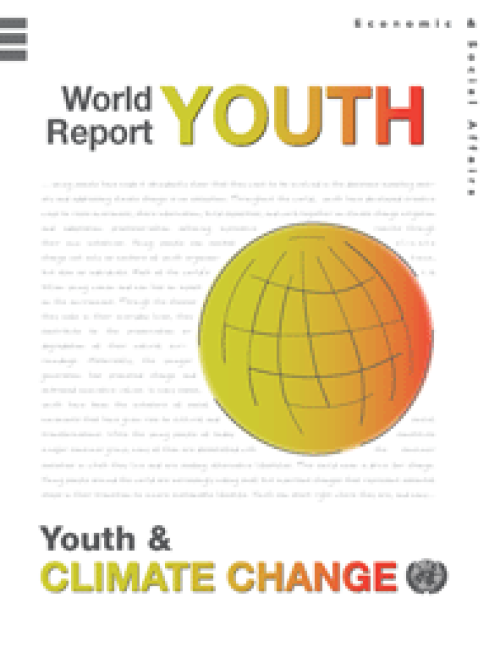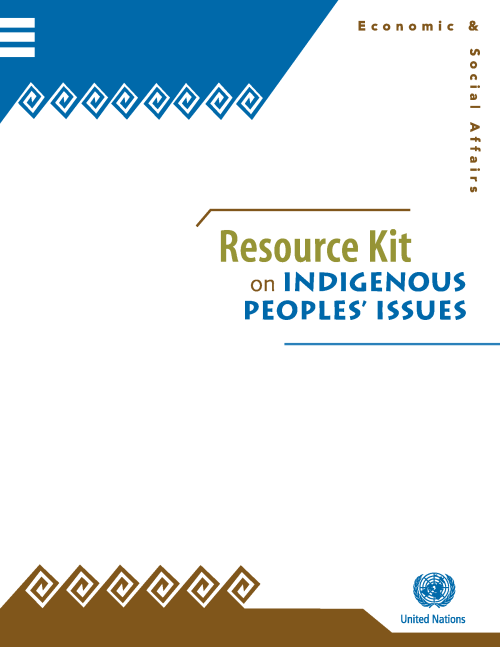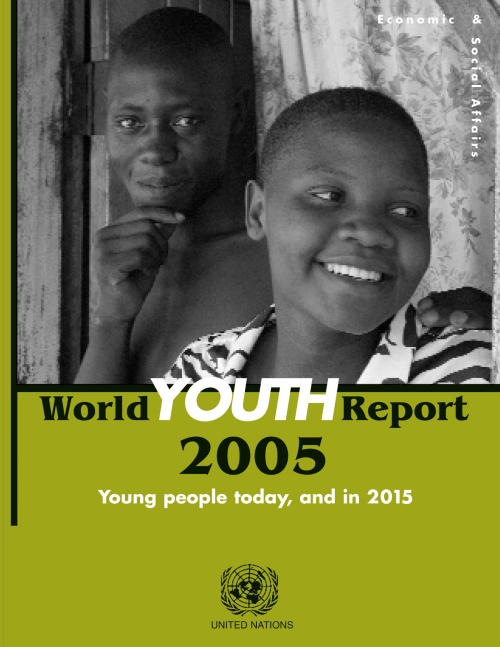Publications
The number of deaths of children under the age of five declined from 12.4 million in 1990 to 8.1 million in 2009, which means nearly 12,000 fewer children die each day. Some of the world’s poorest countries have also made impressive gains in the fight against poverty, but the least developed countries still lag in efforts to improve living standards.

The World Youth Report focus on youth and climate change, and is intended to highlight the important role young people play in addressing climate change, and to offer suggestions on how young people might be more effectively integrated as individuals and collective agents of change within the realm of climate change adaptation and mitigation. The Report is designated to assist youth and youth organizations in educating themselves and to become more actively involved in combating the threat of climate change. It is also meant to affirm the status of young people as key stakeholders in the fight against climate change. The publication comes at a time when efforts to address climate change…

SPFII, in cooperation with ILO, UNICEF, UNDP, UNFPA and SCBD has published the Resource Kit on Indigenous Peoples Issues. The Kit is aimed UN Country Teams (UNCTs), and other development agents, providing them with guidance as to how to engage indigenous peoples and include their perspectives in development processes.
The world continues to make advances towards the Millennium Development Goals (MDGs), despite the global economic downturn, but the rate of improvement remains too slow and countries must step up their efforts if the MDGs are to be achieved by their target date of 2015, a new United Nations report says. The annual assessment report, released today by Secretary-General Ban Ki-moon, shows that the world has made huge strides in reducing extreme poverty...
The United Nations Statistical Yearbook is an annual compilation of a wide range of international economic, social and environmental statistics for over 200 countries and areas of the world, compiled from sources including UN agencies and other international, national and specialized organizations. The fifty-second issue contains data available to the Statistics Division as of June 2008 and presents them in 68 tables on topics including: agriculture; balance of payments; communication; development assistance; education; energy; environment; finance and gender.
There are over 370 million indigenous people in some 90 countries, living in all regions of the world. The situation of indigenous peoples in many parts of the world is critical today. Poverty rates are significantly higher among indigenous peoples compared to other groups. While they constitute 5 per cent of the world's population, they are 15 per cent of the world's poor. Most indicators of well-being show that indigenous peoples suffer disproportinately.
The Millennium Development Goals report presents a yearly assessment of global progress towards achieving the MDGs. It is prepared by the Statistics Division at DESA on the basis of input provided by the members of the Inter-agency and Expert Group on MDG Indicators. Less than six years away from the 2015 deadline to achieve the MDGs, this report warns that despite many successes, overall progress has been...
This report presents an assessment of progress, based on data available as of June 2008 on all official Millennium Development Goals (MDG) indicators, including the new ones introduced. The aggregate figures in the report provide an overall assessment of regional progress under the eight goals and are a convenient way to track advances over time.

The year 2005 marks ten years since the General Assembly adopted the World Programme of Action for Youth in 1995. This report, an official report to the General Assembly, called for a renewed committment to the goals of the World Programme of Action, since over 200 million youth were living in poverty, 130 million youth were illiterate, 88 million were unemployed and 10 million young people were living with HIV/AIDS.
In the World Youth Report 2005, it is argued that too often, youth policy is driven by negative stereotypes of young people, including delinquency, drug abuse and violence. What seems to be forgotten is that young people are a positive force for development, peace,…
 Welcome to the United Nations
Welcome to the United Nations